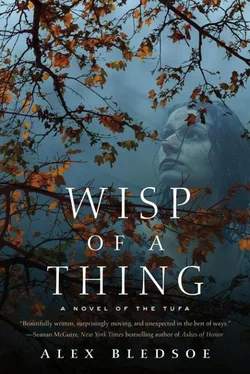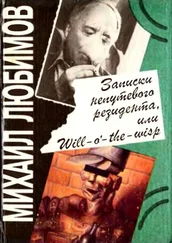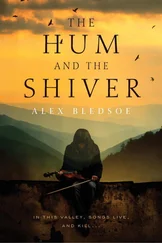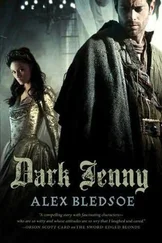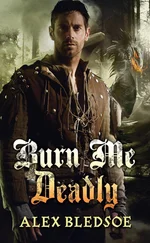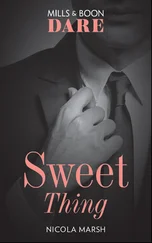The staggering reality of the scenery hit him anew. The horizon in Kansas was impossibly distant and flat; here it loomed over him. The rounded mountaintops were daubed with spots of yellow and orange as the trees began to turn. Beyond them, the far peaks rose ponderously, clothed in somber hues of spruce. Where the forest had been cleared from the slopes, the hills swelled with lush grass. Tiny dwellings perched here and there, some visibly new, most as old and gray as the rocks beneath them. Cell phone towers poked into the sky along the ridges; they reminded him of hairy moles on an old woman’s chin.
He immediately tried to find metaphors for the beauty, words that captured the overwhelming sense of massiveness and antiquity. He imagined the first European settlers reaching the top of one of these ridges and seeing the valley in which he now stood. Whether they’d been English, Scotch-Irish, or German, they would have been overwhelmed by the vista before them: all this untouched virgin land just waiting to be cleared, built on, and developed.
And when those first settlers arrived, they found the Tufa already here.
The wind shifted direction, and he shivered. His guidebook said the temperature change could be extreme in late summer and early fall, from the high seventies during the day to the thirties at night. He grabbed his bags and quickly went inside.
The lobby smelled like potpourri and fresh flowers; lace-edged country knickknacks covered every surface, and one corner was set up with displays of the same items for sale. He stepped up to the desk, carefully propped his guitar case against it, and less carefully dropped his duffel bag to the floor. “Hello?” he called.
A woman in her fifties, with dark skin and ebony hair touched with gray, appeared from the office. She wore a T-shirt decorated with appliqué hearts. “Hello, young man. Can I help you?”
“I’ve got a reservation. Robert Quillen. Hope I’m not too early to check in.”
Peggy Goins looked him over with the practiced evaluation of a woman who had never lost touch with her inner horny teenager, the one who’d spent a single glorious summer in the 1960s traveling and fucking all along the eastern seaboard. This Robert Quillen was slender, with a thick head of black hair, an easy smile, and dark, piercing eyes. She’d seen eyes like that before; they spoke of the capacity for furious anger, and other furies far more intimate. He carried a single bag, which meant he traveled alone, and a guitar, which said he was musical.
Although he looked like one of them, she knew immediately there was no Tufa blood in him. It happened occasionally; people ran across the “Tufa mystery” on the Internet or in a book and imagined they, too, were somehow connected. But there was more to it than just physical resemblance. After all, the Tufa weren’t the only ones in the world with straight black hair and a swarthy complexion. But this boy sure did look the part, and folks in Needsville with less of the true in them might easily assume he was, especially since he was a guest at the Catamount Corner. Peggy’s establishment survived on the desire of anyone with even a drop of Tufa blood to return to Needsville. It was similar to the call of Mecca, or a bird’s urge to migrate, except that it was more subtle, usually unconscious, and could be resisted without too much effort. Those who answered it, however, often learned things about themselves they’d never imagined.
She flipped through a recipe box and pulled out a three-by-five index card. “Here you are, Mr. Quillen. And how long will you be staying with us?”
“Probably three nights, but maybe more. Is that too vague? I mean, if I need to stay on longer, will that be a problem?”
“Not at all. We only have one other couple coming in this weekend. Now, next month, when the leaves really start to turn, then it’ll be a madhouse here. Nothing but Canadians and Texans until Thanksgiving.” She handed him the guest registration card. “Fill this out for me, if you would.”
She took his Visa card and ran her fingers over the signature on the back. She sensed only vague things from it, but they made her frown nonetheless. She was right about his temper; it would burst out soon, and affect a lot of people in town. She also saw disturbing flashes of blood, and the ghastly image of a pale hand clawing up from a grave. But mixed in were smiles, strains of music, and the sighs of lovers. She remembered her own omens at sunrise and wondered how this newcomer would figure into them.
Rob quickly filled in the other information, but paused at “emergency contact.” Normally, it would be Anna. Now, he had no idea whom to put down. He left it blank.
As she waited for the card’s authorization, Peggy asked, “Here to trace your family?”
“People keep asking me that. Do I really look that much like a Tufa?”
She waved her hand. “Oh, honey, looks got nothing to do with it. Tufa’s like Cherokee, you can be blond and blue-eyed and still have enough in you to count. It’s just that we get people in here, prowling the cemeteries, looking for ancestors. They take pictures and videos and rubbings and such.”
“Well, not me. I’m a musician.”
She nodded, and then her eyes widened. “Oh, my goodness, you’re Rob from the TV show!”
His cheeks burned. This never got easy. “Yep, that’s me.”
“I am so sorry, I didn’t recognize your name at first. Oh, you poor thing, bless your heart.”
“Thank you. Do you mind if we keep this just between ourselves for now?”
“Of course, whatever you need.” She patted his hand. “But if you want to talk, I promise you, I can listen with the best of them, and I keep secrets like a beehive keeps honey from a bear.”
“Thank you,” he repeated.
She returned his credit card, but when he reached for it, she said, “Would you mind if I had a look at your palm?”
“Are you going to tell my future?”
“Oh, no, nothing so silly. No one can predict the future. Every blink of every eye changes it. I can just sometimes tell what your next few days might be like.”
“Well… I suppose.” He put his card back in his wallet, then let her hold his hand, palm up.
Most of her evaluation was empirical. Rob’s hand was small, but by its weight, she knew the muscles were built up the way only prolonged musical practice would develop them. His nails were short and neat. One knuckle felt larger than normal, probably a healed injury from the temper she’d already sensed. But then came observations and impressions that had no material source, but that she trusted as much as any physical sign. After a moment, she released his hand and nodded.
“Did I pass?” he asked, amused despite himself.
“Of course. It looked to me like your time here will do you a world of good. Everything will be different when you leave.”
“That’s a tall order.”
She patted his hand. “You just wait and see. But I’ve got to warn you: Not everyone you meet will be as honest as me.”
“I’ve worked with TV producers. I’m ready for anything.”
He followed Peggy across the lobby. He stopped at a framed newspaper clipping on the wall that showed a dark-haired young woman in an army uniform gazing sternly into the camera. He recognized her at once. “Bronwyn Hyatt is from here?”
“Oh, yes. She grew up here. She lives out at her family’s farm.”
“Huh. Imagine that.” He remembered the media circus surrounding her rescue in Iraq and her return to the States in the spring, and the way that she completely dropped out of the public consciousness since. Maybe he should look her up and ask her how she did that.
* * *
Upstairs, Peggy unlocked room 17B with a simple key, not one of those ID cards used in chain motels. Then she stepped aside so he could enter.
Читать дальше
